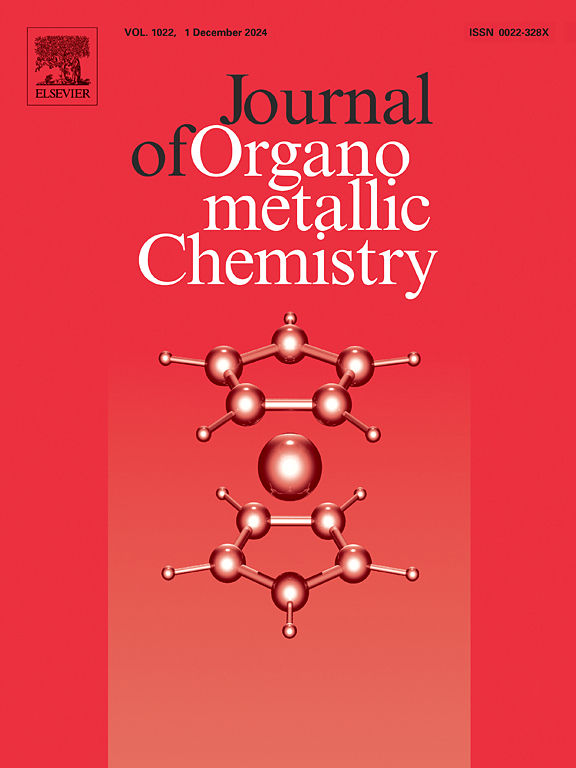DESs溶剂中磁性mof锌纳米催化剂:合成2,4-二取代喹啉的可持续途径
IF 2.1
3区 化学
Q3 CHEMISTRY, INORGANIC & NUCLEAR
引用次数: 0
摘要
对有机合成中环境友好程序的兴趣日益增长,促使人们发现了更环保的催化系统。本文介绍了一种在深共晶溶剂(DESs)中可回收磁性金属-有机框架(magnetic - mof)锌纳米催化下高效、环保地合成2,4-二芳基喹啉的方法。合成了可回收催化剂MNPs@Cellulose/Zn-MOF,并对其进行了充分表征。该催化剂在温和的反应条件下,具有良好的活性、选择性和可重复使用性。采用DESs作为绿色溶剂,提高了催化活性,避免了有害溶剂的使用。值得注意的是,催化剂的磁性性质有助于催化剂的回收和重复使用多达8次,而不会显著降低活性。本文确定了磁性mof纳米催化剂在推动绿色合成过程和鼓励环境友好催化反应方面的潜力。本文章由计算机程序翻译,如有差异,请以英文原文为准。

Magnetic-MOF Zinc nanocatalyst in DESs Solvent: a sustainable route for 2,4-Disubstituted Quinoline synthesis
Growing interest in environmentally friendly procedures in organic synthesis has motivated the discovery of greener catalytic systems. In this present work, an efficient and environmentally friendly synthesis method of 2,4-diaryl quinolines has been introduced under recyclable magnetic metal-organic framework (Magnetic-MOF) zinc nanocatalysis in deep eutectic solvents (DESs). The recyclable catalyst, MNPs@Cellulose/Zn-MOF, was synthesized and fully characterized, displaying great activity, excellent selectivity, and outstanding reusability under mild reaction conditions. The use of DESs as green solvents has enhanced the catalytic activity and avoided the use of harmful solvents. Notably, the magnetic nature of the catalyst facilitates the recovery and reuse of the catalyst up to eight times without significant loss in activity. The paper identifies the potential of Magnetic-MOF nanocatalysts in driving green synthetic procedures and encouraging environmentally friendly catalytic reactions.
求助全文
通过发布文献求助,成功后即可免费获取论文全文。
去求助
来源期刊

Journal of Organometallic Chemistry
化学-无机化学与核化学
CiteScore
4.40
自引率
8.70%
发文量
221
审稿时长
36 days
期刊介绍:
The Journal of Organometallic Chemistry targets original papers dealing with theoretical aspects, structural chemistry, synthesis, physical and chemical properties (including reaction mechanisms), and practical applications of organometallic compounds.
Organometallic compounds are defined as compounds that contain metal - carbon bonds. The term metal includes all alkali and alkaline earth metals, all transition metals and the lanthanides and actinides in the Periodic Table. Metalloids including the elements in Group 13 and the heavier members of the Groups 14 - 16 are also included. The term chemistry includes syntheses, characterizations and reaction chemistry of all such compounds. Research reports based on use of organometallic complexes in bioorganometallic chemistry, medicine, material sciences, homogeneous catalysis and energy conversion are also welcome.
The scope of the journal has been enlarged to encompass important research on organometallic complexes in bioorganometallic chemistry and material sciences, and of heavier main group elements in organometallic chemistry. The journal also publishes review articles, short communications and notes.
 求助内容:
求助内容: 应助结果提醒方式:
应助结果提醒方式:


